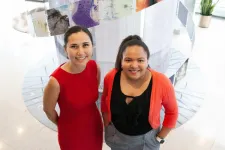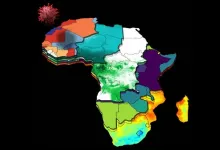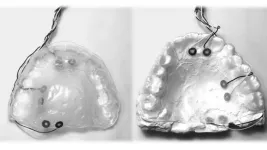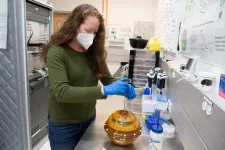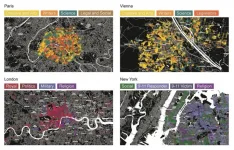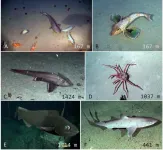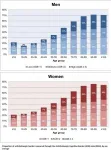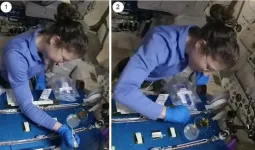INFORMATION:
Proteins could offer risk markers and therapy targets in diabetic kidney disease
2021-06-30
(Press-News.org) A 7- to 15-year longitudinal study of 358 diabetics has linked 3 proteins in blood with a slower progression of diabetic kidney disease and progressive kidney failure. The results from Zaipul Md Dom and colleagues suggest that the proteins could help researchers identify diabetics most at risk of kidney damage, potentially enabling earlier interventions and treatment. Despite advancements in blood sugar control and kidney therapies, patients with type 1 or type 2 diabetes still face a high risk of diabetic kidney disease. This condition can eventually progress to end-stage kidney disease, but some patients show slower kidney decline than others. In recent years, scientists have focused on understanding why some individuals progress at slower rates and whether they might harbor proteins that protect the kidneys from the effects of diabetes. As part of the Joslin Kidney study, Md Dom et al. followed two groups of patients with type 1 or type 2 diabetes and varying degrees of diabetic kidney disease (358 total) for between 7 to 15 years. While analyzing more than 1,000 proteins in the patients' plasma, the researchers discovered that patients who progressed slowly had higher amounts of the proteins ANGPT1, TNFSF12, and FGF20. The team confirmed this protective link in an independent group of 294 type 1 diabetics; they also found that FGF20 was elevated in healthy, non-diabetic parents of type 1 diabetics who remained free of kidney complications. If validated in larger studies, this finding "could have a profound implication in future research on determinants of progressive renal decline in [type 1 diabetes]," the authors say. However, they caution that more studies are necessary to confirm a causal link between the 3 proteins and protection from diabetic kidney disease.
ELSE PRESS RELEASES FROM THIS DATE:
AI and marshmallows: Training human-AI collaboration
2021-06-30
Despite unprecedented advancements in technology and countless depictions of complex human-AI interactions in sci-fi movies, we have yet to fully achieve AI bots that can engage in conversation as naturally as humans can. Kushal Chawla, researcher at the USC Institute for Creative Technologies (ICT) and a doctoral student in computer science, along with collaborators at both the USC Information Sciences Institute (ISI) and ICT are taking us one step closer to this reality by teaching AI how to negotiate with humans.
The research, presented at the 2021 Annual Conference of ...
New markers for coronary microvascular disease identified
2021-06-30
Although cardiovascular disease is the main cause of illness among women in the U.S., certain conditions such as coronary microvascular disease (CMD) cannot be easily diagnosed. In a new study, researchers at the University of Illinois Urbana-Champaign have identified specific biomarkers for CMD, which might reduce future hospitalizations.
CMD damages the inner walls of blood vessels causing spasms and decreased blood flow to the heart muscle. "Clinicians look for plaque formation in the blood vessels, which does not occur in CMD," said Zeynep Madak-Erdogan (CGD/EIRH/GSP), an associate professor of nutrition. "Usually, ...
International team develops predictive tool to help mitigate COVID-19 in Africa
2021-06-30
The virus that gives rise to COVID-19 is the third coronavirus to threaten humanity in the past two decades. It also happens to move more efficiently from person to person than either SARS or MERS did. The first African case of COVID-19 was diagnosed in Egypt in mid-February of 2020. Four weeks later, the first lockdowns began across Africa. Steven Schiff, Brush Chair Professor of Engineering at Penn State, who already had established research partnerships in Uganda, saw an opportunity for his team to apply what they were learning from their ongoing efforts to track and control infectious disease and ...
Conservation aquaculture could bring more native oysters to west coast
2021-06-30
Ten estuaries on the West Coast of North America have been identified as priority locations for expanding the use of conservation aquaculture in a study led by the Native Olympia Oyster Collaborative and funded by the Science for Nature and People Partnership (SNAPP). SNAPP is a research collaboration supported by the National Center for Ecological Analysis & Synthesis (NCEAS) at UC Santa Barbara.
The study, published in Plos One, recommends locations and methods for the strategic expansion of conservation aquaculture to bring back Olympia oyster populations -- both to local estuaries where they have most declined, and into more local restaurants for oyster lovers to dine on. The authors propose using aquaculture in these estuaries -- ...
Research lays groundwork for restoring lost oral functions with pacemaker-like devices
2021-06-30
Even the mundane act of swallowing requires a well-coordinated dance of more than 30 muscles of the mouth. The loss of function of even one of these, due to disease or injury, can be extremely debilitating. For these people, nerve stimulation offers a ray of hope to regain some of their lost oral function.
In a new study, researchers at Texas A&M University have delineated the minimum size of electrical currents needed to provide sensation in different parts of the mouth. The researchers said their study is a first but vital step toward building electrical stimulation implants that can restore essential intraoral functions that are lost due to nerve or brain damage.
The results of the study are published in the journal ...
NIST-led study finds variations in quantitative MRI scanners' measurements
2021-06-30
Magnetic resonance imaging (MRI) is widely used in medicine to detect, diagnose and treat diseases such as cancer, while relying on experts' interpretation of images. Quantitative MRI, which obtains numerical measurements during the scans, can now potentially offer greater accuracy, repeatability and speed -- but rigorous quality control is needed for it to reach its full potential, according to a new study.
Researchers at the National Institute of Standards and Technology (NIST) led the study by 11 institutions comparing measurements by 27 MRI scanners from three vendors at nine clinical sites around the country. To obtain reference values and disentangle sources of bias and variation, the study used a tissue stand-in, or "phantom," originally ...
Streetonomics: using street names to quantify a city's cultural values
2021-06-30
A city's street names can provide a glimpse into its cultural value system and a way to quantify cultural indicators, according to a study published June 30, 2021 in the open-access journal PLOS ONE by Melanie Bancilhon from Washington University in Saint Louis, U.S., and colleagues.
Ever since named streets have existed, they have been used as a form of social engineering, mirroring a town or city's social, cultural, political, and religious values. Building off this concept in what they term "streetonomics," Bancilhon and colleagues used street names as an alternative route to quantify cultural indicators in four influential Western cities: Paris, Vienna, London, and New York.
The authors used multiple open data sources ...
Deep sea Pacific Salas y Gómez and Nazca ridges are highly biodiverse
2021-06-30
The deep sea Pacific Salas y Gómez and Nazca ridges are highly biodiverse and host unique fish and invertebrate taxa, according to video surveys.
INFORMATION:
Article Title: Deep-sea biodiversity at the extremes of the Salas y Gómez and Nazca ridges with implications for conservation
Funding: The expeditions were funded by the National Geographic Society and Pristine Seas donors with support to AMF. Conservation International, the Paul M. Angell Family Foundation, Tom and Currie Barron, and Alan Eustace provided additional support to DW, WG and JG. The Chilean Millennium Science Initiative Program grant #NC120030 ...
6% of under-18s at risk of cognitive decline and more due to anticholinergic medications
2021-06-30
In the German population, a surprisingly high 6% of under-18s are at risk of cognitive decline, falls and more from the cumulative effect of anticholinergic medications such as antihistamines and antidepressants.
INFORMATION:
Article Title: Anticholinergic burden: First comprehensive analysis using claims data shows large variation by age and sex
Funding: The authors received no external funding for this work.
Competing Interests: UH, OR, MB and JR are working at an independent, non-profit research institute, the Leibniz Institute for Prevention Research and Epidemiology - BIPS. Unrelated to this study, BIPS occasionally conducts studies financed by the pharmaceutical industry. Almost exclusively, these are post-authorization ...
Astronauts demonstrate CRISPR/Cas9 genome editing in space
2021-06-30
Researchers have developed and successfully demonstrated a novel method for studying how cells repair damaged DNA in space. Sarah Stahl-Rommel of Genes in Space and colleagues present the new technique in the open-access journal PLOS ONE on June 30, 2021.
Damage to an organism's DNA can occur during normal biological processes or as a result of environmental causes, such as UV light. In humans and other animals, damaged DNA can lead to cancer. Fortunately, cells have several different natural strategies by which damaged DNA can be repaired. Astronauts traveling outside of Earth's protective atmosphere face increased risk of DNA damage due to the ionizing radiation ...
